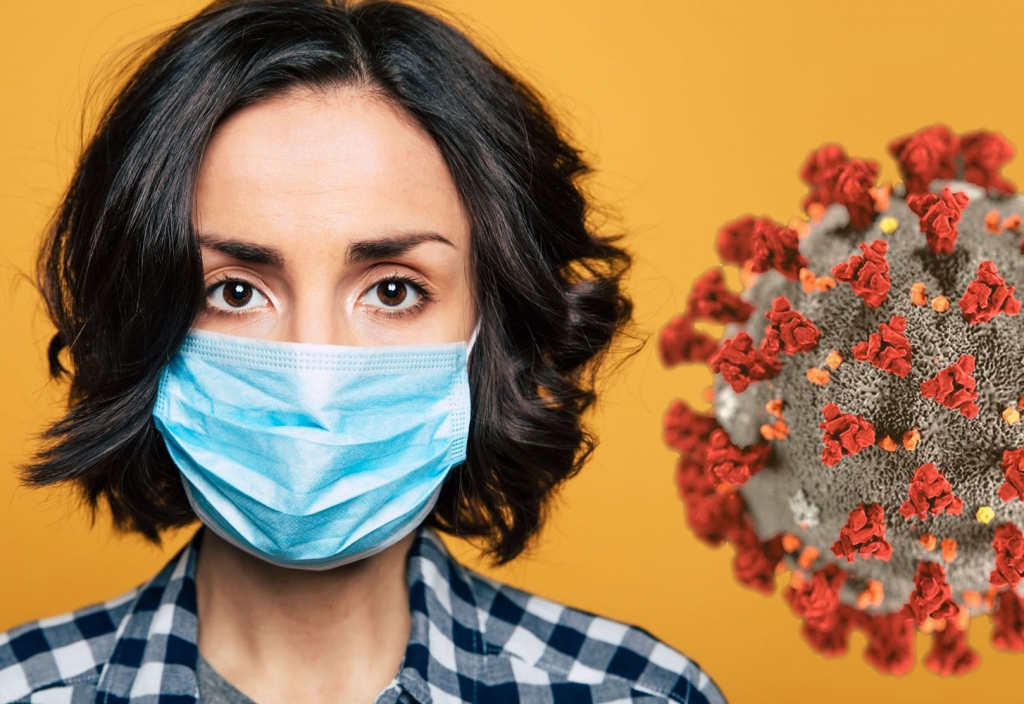Table Of Content

In one 2017 study of 100 people with hair loss, the authors noted several nutritional deficiencies in participants, including deficiencies of amino acids that serve as the building blocks of protein. It’s a delicate balance that means you generally don’t notice the shedding—you have plenty of growing hairs to make up for any you lose. According to Garza, stress management can often be an effective way to address the condition. "One thing I tell patients who come in for hair loss is that they might benefit from seeing a therapist, because we know that stress causes hair loss and hair loss also adds to stress," he said. However, evidence suggests that people who have a history of Covid-19 infection are four times as likely to experience hair loss than those who have no history of infection. "Experts have known for centuries that severe illness, surgery, blood loss, hospitalization, childbirth and extreme emotional events, like the loss of a loved, one can trigger telogen effluvium," Sheikh writes.
Strong to severe thunderstorms expected through early Sunday
While we know that stress is an undeniable factor in most people’s lives, its impact on so many aspects of our physical and mental health is perhaps more far reaching than we might imagine. When it comes to our hair, stress is the second biggest cause of hair loss after genetics, but because the process usually takes anywhere between three and six months to happen, many people don’t make the connection. According to Healthline, other common types of alopecia include traction alopecia, telogen effluvium, alopecia areata, central centrifugal cicatricial alopecia (CCCA), and lichen planopilaris (LPP). According to Agbai, genetics, hormonal shifts, stress, underlying medical conditions, nutritional deficiencies, and scalp inflammation are notable factors.
When should I get tested?

As disconcerting as it can be, Dr. Khetarpal says hair loss as a result of COVID-19 infection, stress or other causes is treatable. Dr. Khetarpal also stresses that the overwhelming benefits of being vaccinated for COVID-19 strongly outweigh any potential hair loss concerns. "Policy changes and things like vector control, updated risk communication with key groups and vaccine adoption can all reduce the risk of pregnant women being infected with dengue," Menezes said. Coauthor Martin Foureaux Koppensteiner, PhD, of the University of Surrey, said the negative birth outcomes also affect dengue-endemic communities. "Hospitalisations and ongoing health issues resulting from maternal infections all have a cost, and one that could be avoided, or at least minimised with increased awareness and improved policy," he said. Policy changes and things like vector control, updated risk communication with key groups and vaccine adoption can all reduce the risk of pregnant women being infected with dengue.
substantial weight loss over a short period of time
However, you may need to use the medication for as long as 12 months before you’ll see any results. It also has various side effects, including loss of libido and erectile dysfunction. Ask your stylist about alternatives, such as organic hair dyes and other products that don’t contain ammonia, peroxide, or para-phenylenediamine (PPD). You may want to try applying a couple of tablespoons of olive oil directly to your hair and letting it sit for 30 minutes before washing it out.
Psychological Stress
How Do I Style My Hair While It's Regrowing After COVID-19 Hair Loss? - The Cut
How Do I Style My Hair While It's Regrowing After COVID-19 Hair Loss?.
Posted: Tue, 23 May 2023 07:00:00 GMT [source]
It found that men with the most pronounced pattern of baldness were more likely to test positive for COVID-19. Both the CDC and the FDA warn against treating this common childhood condition on your own with non-prescription treatments. “If someone is deficient in vitamin D or iron, we know that their hair can shed. So, that’s why we say that with a multivitamin, you can make sure you’re getting enough nutrients that you need for your hair,” Dr. Khetarpal says. While many gut microbes carrying ARGs don't pose a health threat, the presence of MGEs indicates the potential for sharing ARGs with pathogenic bacteria. The researchers also found that Enterobacterales, specifically Escherichia coli, were key contributors to ARG load.
In this article, we use “male” and “female” to refer to someone’s sex as determined by their chromosomes and “men” and “women” when referring to their gender (unless quoting from sources that use nonspecific language). Also see a doctor if the shedding hasn’t started to slow down after three or four months. “Telogen effluvium can occur not just with Covid but with any other significant illness or surgery,” explains Diane Jackson-Richards, MD, senior staff dermatologist and director of multicultural dermatology at Henry Ford Health System in Detroit. The study involved patients who had been discharged from Jin Yin-tan Hospital between 7 January and 29 May 2020 after being treated for COVID. The study also found that fatigue, shortness of breath, dizziness and joint pain were "primary long-term symptoms" of the virus.
Impact on Hair Follicles

Many people consider a full, healthy head of hair central to their appearance and self-confidence. But you might find it helpful to know that there are several things you can do to help prevent hair loss or encourage hair growth. “Telogen effluvium happens when more hairs than normal are pushed into the shedding phase of the hair growth life cycle,” explains Dr. Marmon. The COVID-19 pandemic has had psychological effects on the general population. Increased psychological stress can have a positive impact on the progression of many skin conditions and can potentially lead to aggravating the underlying disease(s).
Study links mode of birth, antibiotic use to more antibiotic resistance genes in infants
The connection between COVID-19 and hair loss in females and males is still under examination, but many studies suggest a correlation. Luckily, hair shedding due to COVID-19 usually stops after months without any specific treatment. People with COVID-19 have suffered a number of symptoms, like fatigue and loss of smell. Studies show that up to 30% of those who had a severe case of COVID-19 experienced temporary hair loss. The good news is the majority of telogen effluvium cases are over in about three to six months, when those additional hairs that were prematurely shifted into telogen have shed. According to Perng, this characteristic recovery happens after an inciting event, such as COVID-19 infection.
9 Celebrities Who Have Gotten Real About Their Hair Loss - POPSUGAR
9 Celebrities Who Have Gotten Real About Their Hair Loss.
Posted: Wed, 31 Jan 2024 08:00:00 GMT [source]
What are the best treatment options for COVID-19?
You can search by location, condition, and procedure to find the dermatologist that’s right for you. Visit our website terms of use and permissions pages at for further information.
The newborns of women who had even mild dengue fever during pregnancy had a 67% and 133% greater risk of being classified as very and extremely low birth weight, respectively. From birth to 3 years, the children were at a 27% higher risk of hospitalization, with a 76% increase in risk at 2 years. The US-based cross-sectional study compared 340 people with and 434 without prior COVID-19, recruited from February 2020 to August 2023 from the social media website Reddit.
In fact, TE has also been observed in some people due to the stresses of quarantining. However, nine participants were still experiencing hair loss at the time they were interviewed. Free to everyone, these materials teach young people about common skin conditions, which can prevent misunderstanding and bullying. Here, dermatologists explain the connection between COVID-19 and hair loss—and what you can do if you’re experiencing this unique type of shedding. The list of possible COVID-19 side effects is as lengthy and diverse as the list of potential symptoms. Among those possible lingering issues is hair loss after COVID-19, a troubling side effect that emerged early on in the pandemic, leaving many people confused and concerned.
Androgenetic alopecia and alopecia areata are other common forms of hair loss, but they both show up differently than the general shedding seen in telogen effluvium. Androgenic alopecia typically manifests as hairline recession or thinning on the crown, specifically. “This is the most common cause of localized hair loss and is often referred to as male or female pattern baldness,” Craig Ziering, MD, a board-certified dermatologist, hair transplant surgeon, and hair restoration specialist, tells SELF. According to the Cleveland Clinic, 50 million people assigned male at birth and 30 million people assigned female at birth in the U.S. experience this type of hair loss, which is largely genetic, although hormones also play a role. Many people are experiencing hair loss as a result of Covid-19 infection or pandemic-related stress. It’s also normal after any kind of major insult to your body or psyche, whether that’s surgery, illness, or ongoing stress.
"Reports that taste loss continues long after the initial infection probably are due in large part to the confusion between taste- and olfaction-dependent food flavor," the authors explained. "Smell loss remained in nearly one-third of individuals with exposure, likely explaining taste complaints of many individuals with [long COVID]." Reports that taste loss continues long after the initial infection probably are due in large part to the confusion between taste- and olfaction-dependent food flavor.

No comments:
Post a Comment